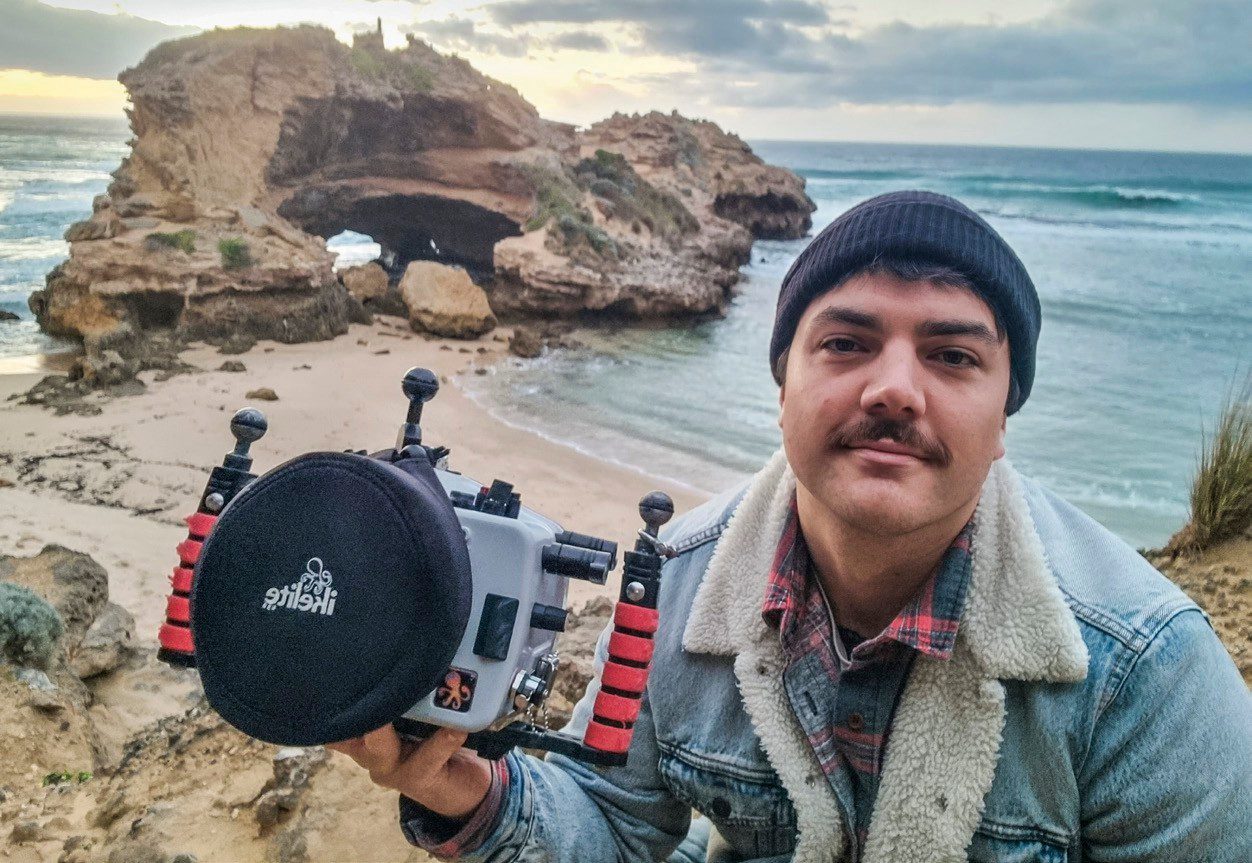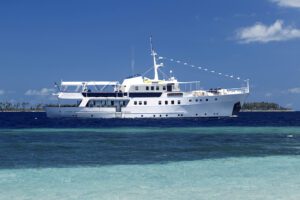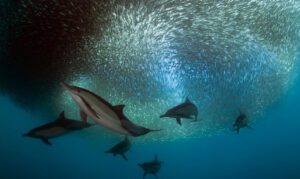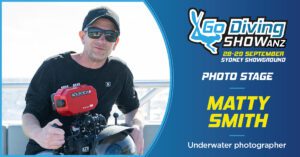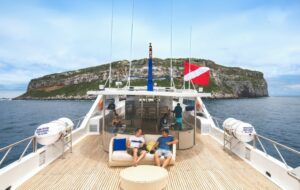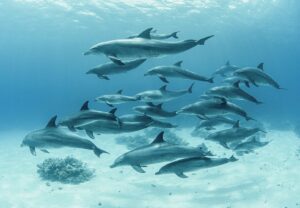PT Hirschfield talks to the award-winning underwater photographer and leading firefighter Steven Walsh, who is keen to dispel myths of achievement-centred ego and stereotypes of occupational heroism.
Photographs by Steven Walsh.
Steven's Humility and Achievements
When asked to list his many successes, Steven Walsh is humble to the core, barely acknowledging his successes in international underwater photo competitions.
These include first place in the Valerie Taylor Award for Excellence Colour Prints section of the 2022 ‘Ocean Geographic Pictures of the Year’ and 2018 Ocean Art competitions, plus places in the 2021 Scuba Diving Magazine Photo Contest, 2021 Wetpixel Masters and Ocean Art 2021.
Dealing with Panic Disorder
Ironically, Steven seems much more comfortable shifting focus to a topic that has had a deep and adverse impact on many aspects of his life, grappling openly with his development and navigation of the diagnosed Panic Disorder, which has impacted his life and diving over recent years. He hopes his openness might encourage others who might face similar challenges.
Journey to Underwater Photography
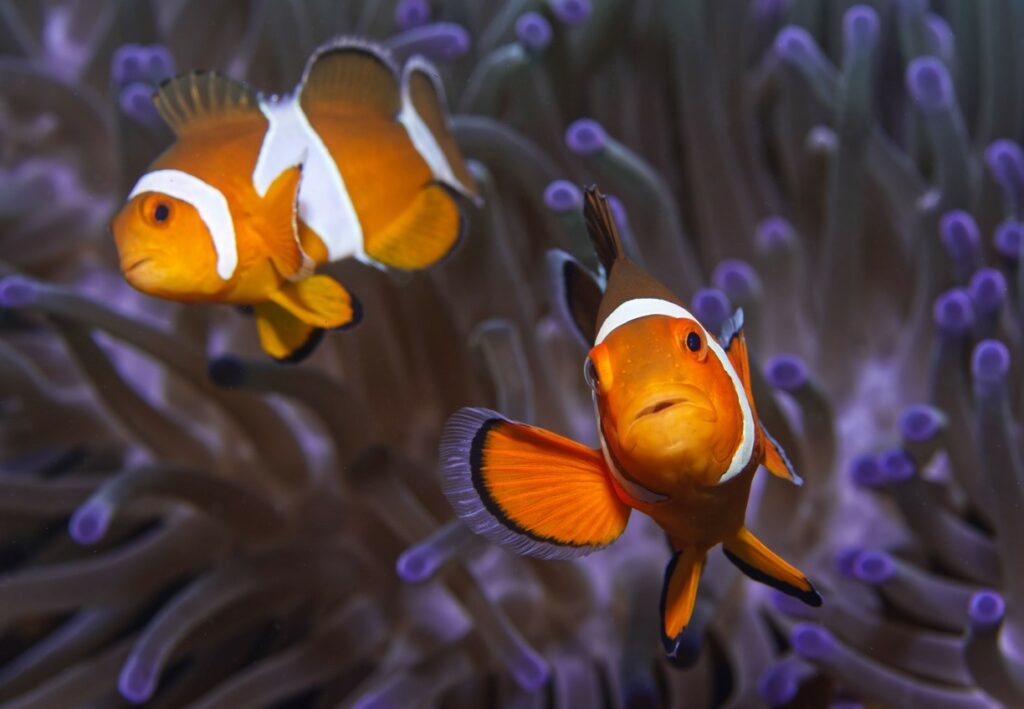
Steven was inspired to take up diving in 2018 after snorkelling at Indonesia’s Gilli T in waters teeming with turtles. He soon returned from Melbourne to Amed to do his Open Water training. In addition to shore diving regularly in Melbourne and having dived in South Australia and Sydney, he’s also dived Komodo and Palau. While Havelock Island in India did not offer particularly noteworthy diving, that experience demonstrates Steven’s willingness to step outside the box, to see and experience life from less-popular vantage points.
The Art of Underwater Photography
‘Underwater photography was the first thing in my life that came naturally to me. I was in my early 30s and had never had that feeling before. I learned all the expensive lessons the hard way, buying cameras that are great on land but not so good underwater.’ Eventually he ‘downgraded’ to a Nikon D850: ‘The best camera doesn’t guarantee the best photos. I had to just get out there, have fun and step back from the consumerism of it all.’
Finding Subjects
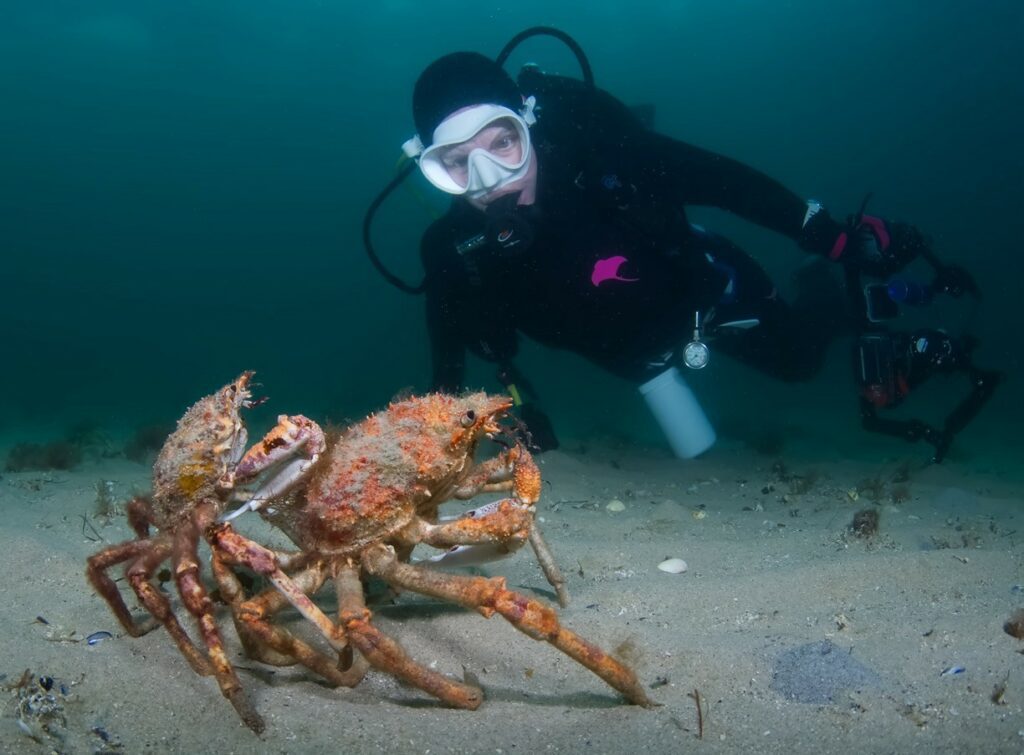
Steven’s approach to finding subjects in the ‘muck’ substrates beneath his local piers is painstakingly slow and methodical. He spends hours in extreme shallows, around a metre or two deep, combing concentrated sections of sea grass, weed and shells for macro creatures in superficially uninspiring terrains: ‘If you slow down, what’s seemingly a barren patch of sand is teeming with life.
Respecting the Sea Life
‘If you plonk yourself down in front of an animal for an hour or two without a predatory vibe, there’s every chance it’s going to do some cool stuff. Getting a cool creative shot should be secondary to respecting the animal. I don’t want to be causing stress. If a seadragon is happy for me to swim alongside it first, then I’ll think about photographing it. If it decides to swim off, I’ll respect it and leave it alone.’
Memorable Encounters
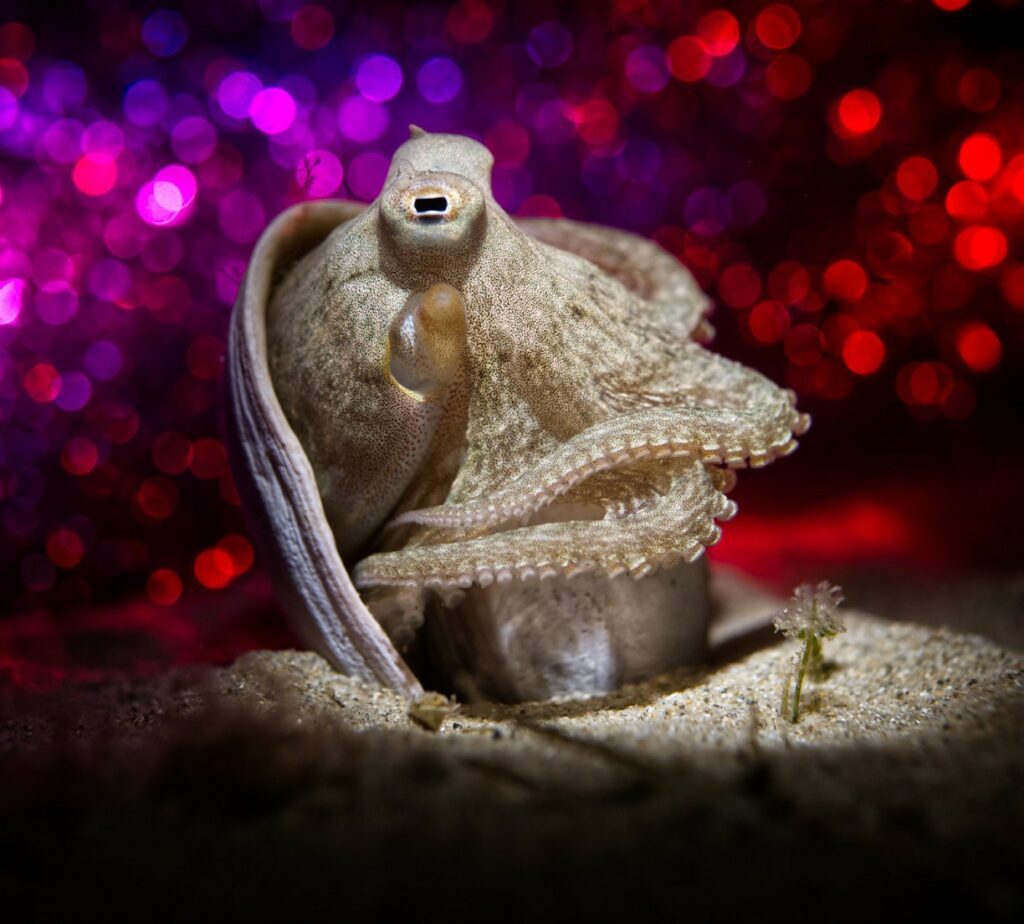
One of Steven’s most-memorable dives features a large Maori octopus that observed him hovering around the engine block it was hiding in: ‘It climbed out and touched me, then just sat there cleaning itself in front of me in the open. They’re smart and very aware of predators, but it felt safe enough to be totally vulnerable in my presence.’ That kind of vulnerability and the need to feel safe resonate strongly with Steven, particularly in context of the panic disorder that in recent years has impacted his dive life.
Facing the Panic Disorder
A mild sense of panic can be a normal sensation for novice divers until they ‘find their fins’ in the underwater world. And it’s commonly accepted that panic can kill a diver more quickly than many other factors. But the onset of Steven’s panic disorder three years after he started diving didn’t correlate with any specific root causes, risk factors or trigger events related to diving.
’The first time I experienced a panic attack, I was sitting on my lounge at home. The symptoms were identical to a heart attack and I thought I going to die. On three occasions I called an ambulance and was rushed to hospital. I developed a fear of having panic attacks. Once you fear panic, that’s Panic Disorder. Your fear of them manifests them, and around and around you go.’
Steven began to fear having panic attacks underwater, which progressively impaired his ability to dive and practice his passion, underwater photography. The panic was often debilitating, reducing Steven’s diving from several times a week to occasional monthly dives. Sometimes he felt he would die underwater, developing a morbid fear of some species he’d dived with many times comfortably without prior concerns.
Path to Recovery
Understanding that ‘the only way past is through,’ Steven set out to ‘reclaim his life’ through exposure therapy: ‘That means doing things that terrify you. For me, that meant diving in a safe and graduated exposure.’ Even just going to the dive site without diving can be a form of exposure work, and part of the journey of recovery: ‘You need to find total acceptance that you’re not dying, that it’s just an adrenaline dump, to stop looping and prolonging the attack. What you resist persists, so now I’m working towards acceptance of panic and anxiety which are feelings that everyone has.’
Mental Health and Ongoing Challenges
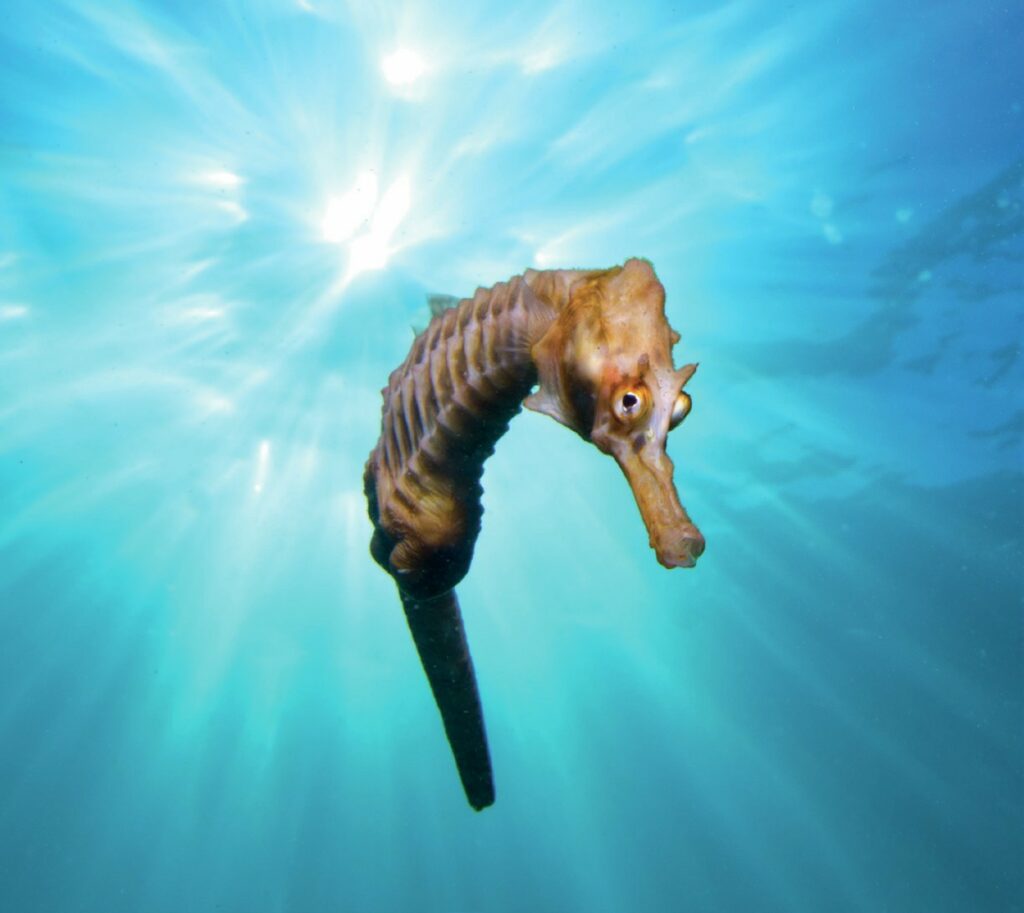
In a world where many only talk about challenges once they’re resolved, it arguably takes even greater courage to discuss aspects of mental health that are long-term and ongoing. While Steven still grapples to feel completely comfortable underwater, he says such conversations are an important part of the process: ’It would feel safer for me to not have this discussion. But I’m not ashamed of what I’ve been through. Over time the overall trajectory can get easier. Though once you’re in disorder territory, it is important to speak with a mental health care professional.’
Future Aspirations
Focusing on the future, Steven is keen to start printing and selling his stunning underwater images, making limited numbers of each print. You can find out more about Steven’s photography at steven.walsh.underwater on Facebook and Instagram.

This article was originally published in Scuba Diver ANZ #57.
Subscribe digitally and read more great stories like this from anywhere in the world in a mobile-friendly format. Link to the article.
